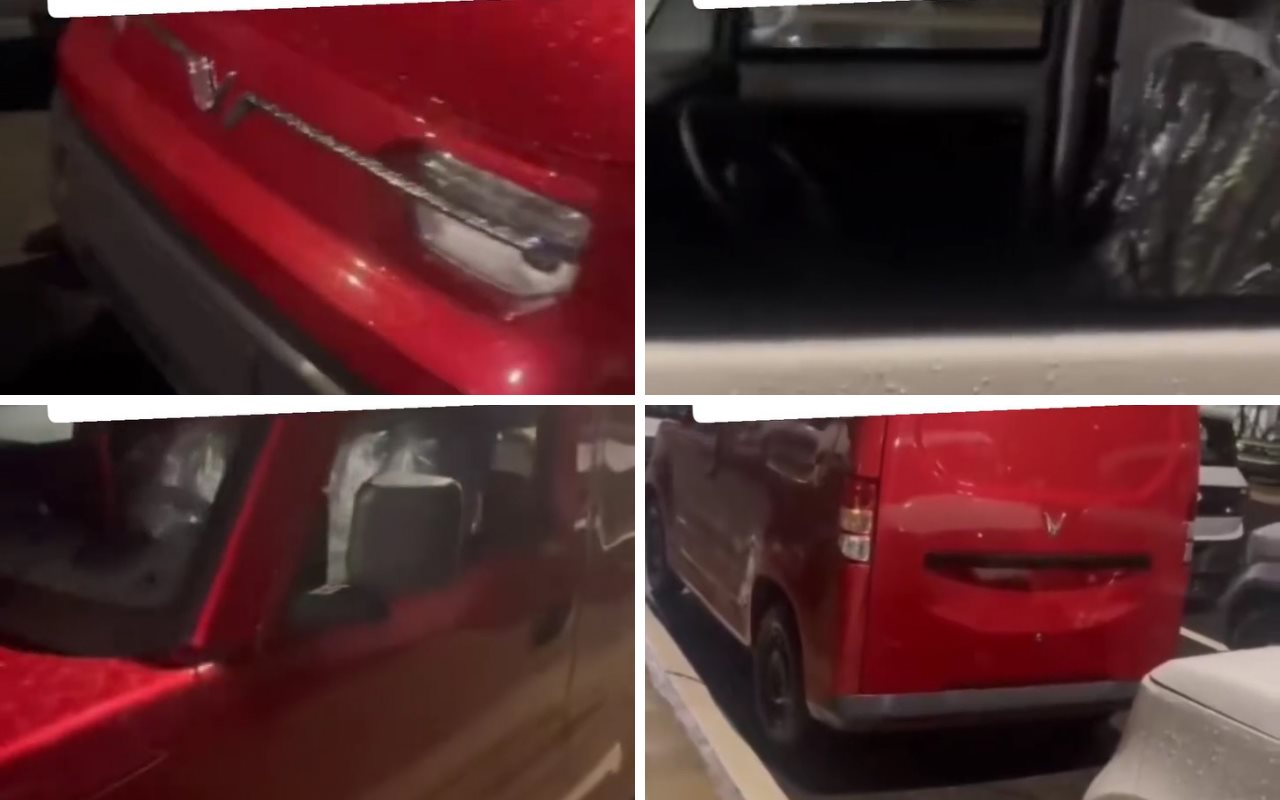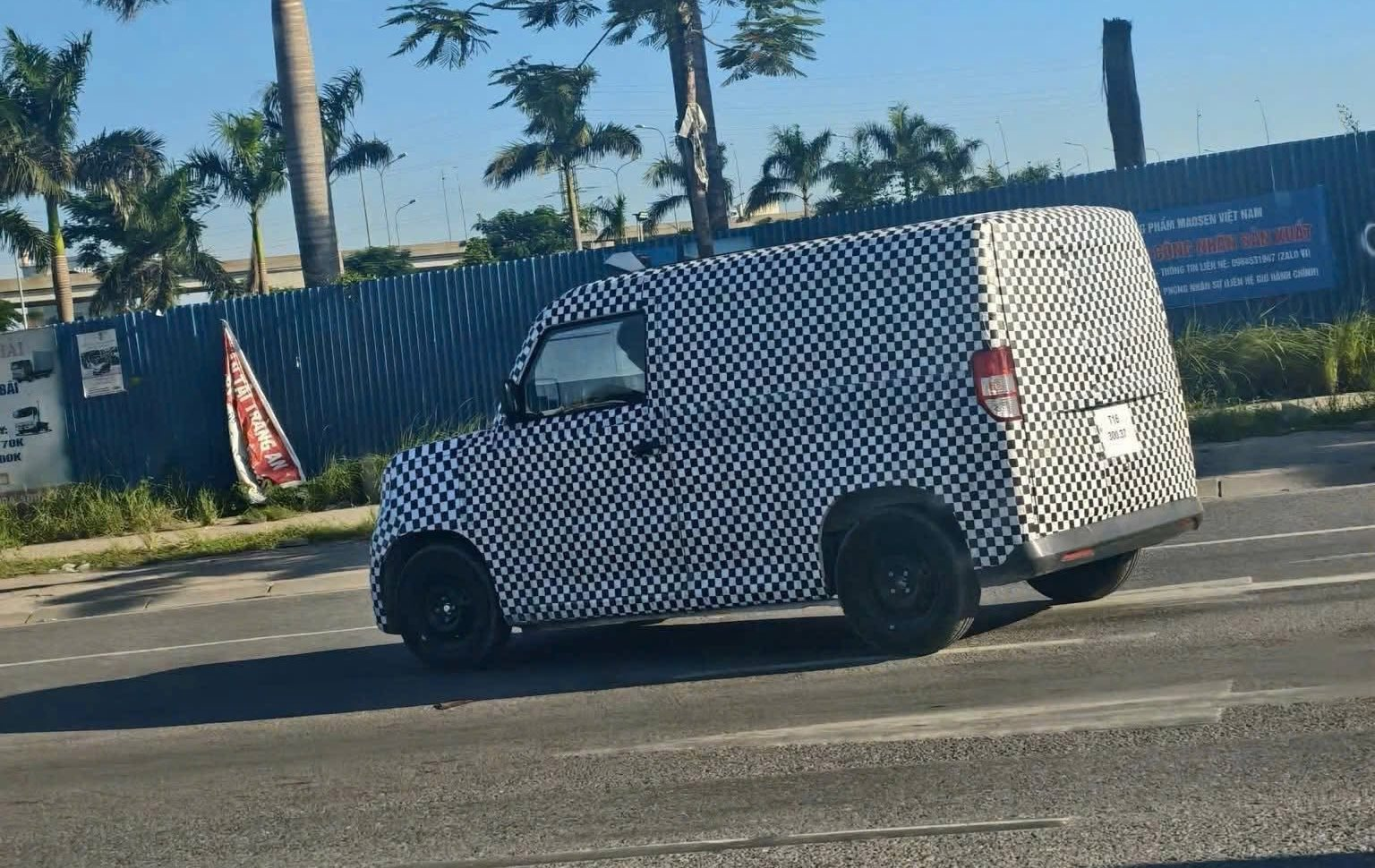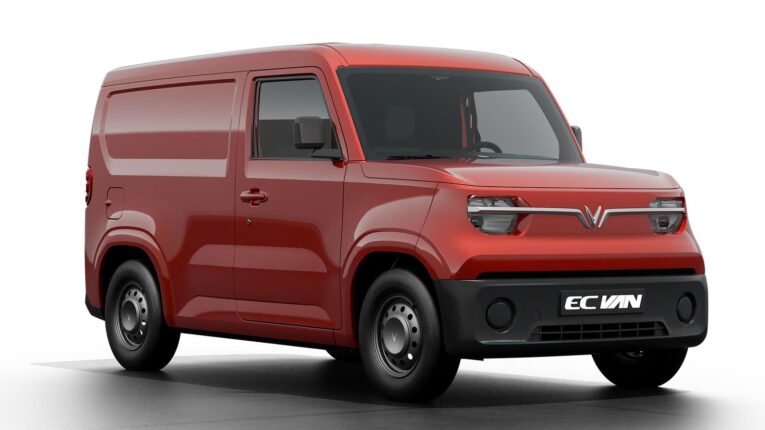Recently, the first real-life images of the VinFast EC Van electric delivery truck surfaced in a video reportedly filmed at a VinFast factory, capturing significant attention from the community and going viral on social media. Shedding its familiar camouflage, the vehicle fully revealed its commercial design, signaling its readiness for the first deliveries scheduled for November. This event quickly garnered interest, especially as the delivery date approaches.
VinFast EC Van Electric Vehicle Unveiled in New Video (Source: Mạnh EV)
From the actual images, several differences from the earlier 3D renderings are noticeable. Most notably, the rear lights are larger, and the door handles feature a pull-latch design instead of the traditional style. These adjustments indicate VinFast’s focus on optimizing the design for commercial use.

The model shows several differences from previously released images.

Previously, the VinFast EC Van was spotted during test drives, covered in camouflage decals.
Positioned as a direct competitor to the Suzuki Blind Van, the VinFast EC Van boasts a size advantage, offering a cargo capacity of up to 2,600 liters and a payload of 600 kg. Equipped with a 17 kWh battery, it delivers a range of 150 km, ideal for urban delivery services.

VinFast EC Van render.
“Agribank: Partnering with Vietnam to End Substandard Housing.”
“The eradication of temporary housing has been a key policy of the Government and the Party, aiming to ensure social welfare for all. Over the years, this initiative has been vigorously directed by the Party, the Government, and various ministries, sectors, and localities. According to statistics, there were once hundreds of thousands of temporary and dilapidated houses, but as of August 2025, only 600 remain across the country.”







































